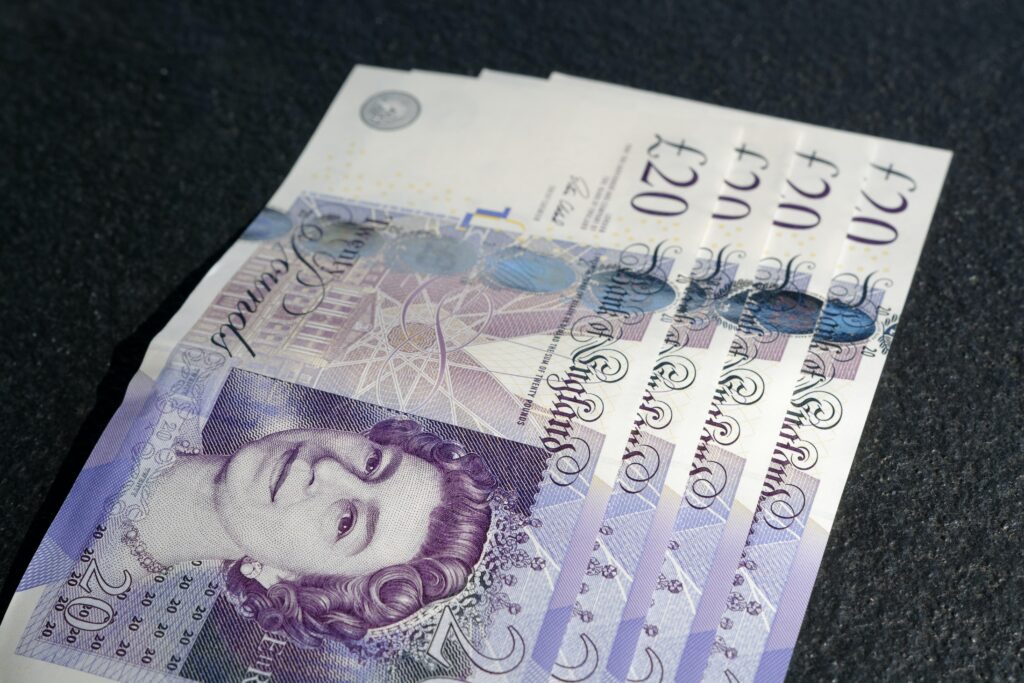

26.09.2022 – Great Britain presents an ambitious tax cut. The market fears too much government debt in the middle of a recession. The pound plummets. Now it smells of a Bank of England backlash. And in the long run, the foolhardy plan of the new Iron Lady Liz Truss could well prove its worth.
Fierce, fierce, what’s going on with “Cable.” The pound just crashed to its lowest level since 1985, and there’s also a recovery underway, as you can see in the four-hour chart of GBPUSD.

Source: Bernstein Bank GmbH
The trigger for the recent flash crash was the new UK finance minister, Kwasi Kwarteng. He shook traders awake with the presentation of his ‘mini-budget’. He proclaimed: “turn the vicious cycle of stagnation into a virtuous cycle of growth”.
Relief for companies and top earners
In other words, the UK economy is to get a shock start by the state foregoing 30 billion pounds in taxes per year. The minister announced that the basic income tax rate would be cut from the current 20 percent to 19 percent next year. The top tax rate on incomes of 150,000 pounds and above will drop from 45 percent to 40 percent. The planned six percentage point increase in corporate income tax will be dropped, leaving it at 19 percent. This is the biggest cut since the 1970s.
The Chancellor rejoiced: “That means a tax cut for over 31 million people in just a few months’ time,” he told parliament. “That means we will have one of the most competitive and pro-growth income tax systems in the world.” In addition, the bonus cap for bankers will be abolished. Furthermore, nearly 40 new “investment zones” with low taxes and low requirements will be created. At the same time, the state is to distribute energy assistance for consumers and companies amounting to 150 billion pounds.
The new Thatcher revolution
The new boss at Number 10 Downing Street had already announced her plans: Liz Truss announced nothing less than a second “Thatcher revolution” on the fringes of the UN General Assembly. The problem is that the market fears more inflation because everything is being financed on credit. Inflation on the island is already at 9.9 percent. Cable is only likely to gain convincingly against the dollar again in the long term as soon as the Bank of England takes drastic steps and closes the interest rate differential with America. Currently, the key interest rate in the UK is 2.25 percent. In the U.S., it is 3 to 3.25 percent, with new U.S. interest rate steps already announced.
The bulls are lurking
There is already talk in the financial market of an emergency meeting of the Bank of England called at short notice. Perhaps we are also seeing a favorable entry opportunity. Ultimately, Truss’ economic policy is likely to achieve exactly what Margaret Thatcher did. The Iron Lady had taken office in 1979 to end the strangulation of a socialist policy. A number of things had been nationalized on the island: the health care system; the steel industry and coal mining, parts of the retail trade, hotels and even travel agencies. All-encompassing welfare, high taxes, sluggish bureaucracy and powerful unions. The island lost competitiveness, the industry hardly played a role in global business, and the pound was in free fall.
Then came the turnaround. Then, as now, successful companies and professionals are likely to move to England in droves. Industry will boom; top earners, who will treat themselves to a cottage or a good life, will bring a lot of taxes into the state coffers. We are curious to see how the situation will develop – and wish you successful trades and investments!
The content of this publication is for general information purposes only. In this context, it is neither an individual investment recommendation or advice nor an offer to purchase or sell securities or other financial products. The content in question and all the information contained therein do not in any way replace individual investor- or investment-oriented advice. No reliable forecast or indication for the future is possible with respect to any presentation or information on the present or past performance of the relevant underlying assets. All information and data presented in this publication are based on reliable sources. However, Bernstein Bank does not guarantee that the information and data contained in this publication is up-to-date, correct and complete. Securities traded on the financial markets are subject to price fluctuations. A contract for difference (CFD) is also a financial instrument with leverage effect. Against this backdrop, CFD trading involves a high risk up to the point of total loss and may not be suitable for all investors. Therefore, make sure that you have fully understood all the correlating risks. If necessary, ask for independent advice. CFDs are complex instruments and are associated with the high risk of losing money quickly because of the leverage effect. 68% of retail investor accounts lose money trading CFD with this provider. You should consider whether you understand how CFD work and whether you can afford to take the high risk of losing your money.7
